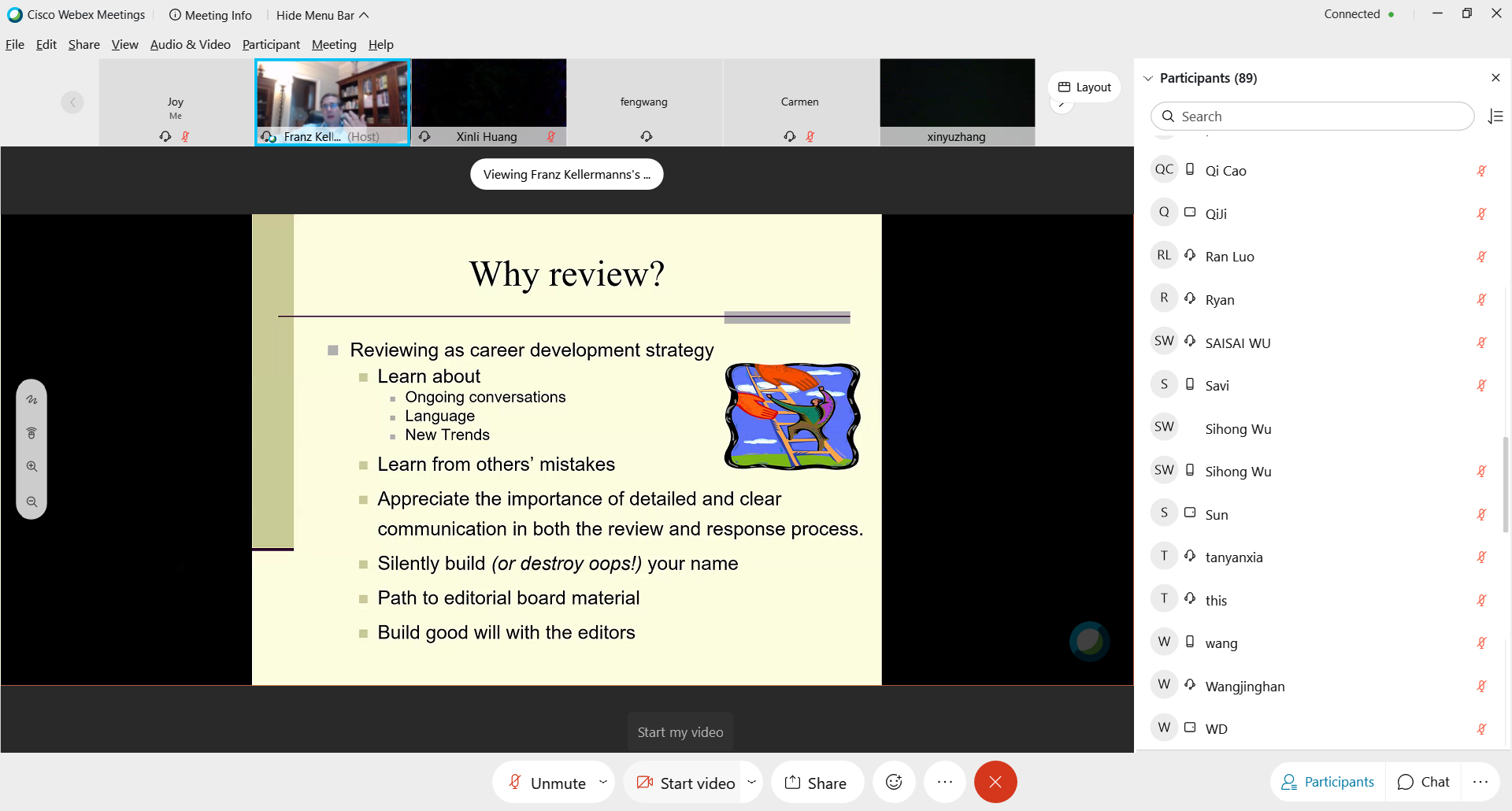The School of Management was excited to welcome Professor Franz W. Kellermanns of Belk College of Business of the University of North Carolina at Charlotte, on December 22, 2020. His seminar titled “How to review and respond to the reviewer” was delivered online due to the ongoing pandemic.
In his seminar, Professor Kellermanns detailed the process by which an academic article is submitted, peer-reviewed, as well as the necessity of the peer-review process. The entire academic process is improved through peer-review and should be incorporated into one's development, as the review process allows the author to improve their original idea, enhance their prose, and understand how a journal accepts or rejects a draft--the more one enters the review process, the more one can increase their odds of publication. Dr. Kellermanns argued that the best way to become involved is to start attending academic meetings, reading other people’s comments, recording the particularities of editors, as well as asking them if you can help in any way during the reviewing process. For beginner reviewers, try to avoid unobtainable suggestions, and always keep in mind whom you’re reviewing for and if there are any unforgivable issues. A reviewer should always try to balance the pros and cons of a draft and reign authors back from a “brand new” unrealistic direction. Specifically, a reviewer must consider the article from the background, current study review, hypothesis, analysis, finding, discussion, references, and graphs and figures. These are the major parts of any writing and should be considered fully. A good reviewer will sometimes become the “lifeguard” of an article and will pose constructive criticisms on how to improve in terms of prose, framework, hypothesis, methods, or weaknesses in the discussion.
Professor Kellermanns next introduced how a publication may be revised, and how an author could improve their research based on the revision. During the revision process, the author should organize all the comments received and find which ones are the toughest to resolve. The revision should then be conducted and improved in a targeted manner, and even if the draft was rejected, there's always the next journal. Indeed, the authors would have to prepare themselves to be published. This requires treating each comment seriously, and carefully consider the implications of each advice. If there are problems that cannot be resolved, the author should consider contacting the editors directly for a consultation.
Based on the review, several outlines can be referenced in the revision, and several ways to deal with rejections.
Finally, Professor Kellermanns showed one of his current articles, and how reviewers gave feedback, as a direct way of understanding the process. Professor Kellermanns took questions after the seminar.
